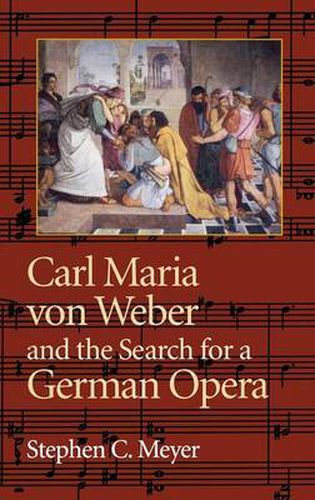Readings Newsletter
Become a Readings Member to make your shopping experience even easier.
Sign in or sign up for free!
You’re not far away from qualifying for FREE standard shipping within Australia
You’ve qualified for FREE standard shipping within Australia
The cart is loading…






Stephen C. Meyer details the intricate relationships between the operas Der Freischutz and Euryanthe, and contemporary discourse on both the Germany of the imagination and the new nation itself. In so doing, he presents excerpts from a wide range of philosophical, political, and musical writings, many of which are little known and otherwise unavailable in English. Individual chapters trace the multidimensional concept of German and foreign opera through the 19th century. Meyer’s study of Der Freischutz places the work within the context of emerging German nationalism, and a chapter on Euryanthe addresses the opera’s stylistic and topical shifts in light of changing cultural and aesthetic circumstances. As a result, Meyer argues that the search for a new German opera was not merely an aesthetic movement, but a political and social critique as well.
$9.00 standard shipping within Australia
FREE standard shipping within Australia for orders over $100.00
Express & International shipping calculated at checkout
Stephen C. Meyer details the intricate relationships between the operas Der Freischutz and Euryanthe, and contemporary discourse on both the Germany of the imagination and the new nation itself. In so doing, he presents excerpts from a wide range of philosophical, political, and musical writings, many of which are little known and otherwise unavailable in English. Individual chapters trace the multidimensional concept of German and foreign opera through the 19th century. Meyer’s study of Der Freischutz places the work within the context of emerging German nationalism, and a chapter on Euryanthe addresses the opera’s stylistic and topical shifts in light of changing cultural and aesthetic circumstances. As a result, Meyer argues that the search for a new German opera was not merely an aesthetic movement, but a political and social critique as well.